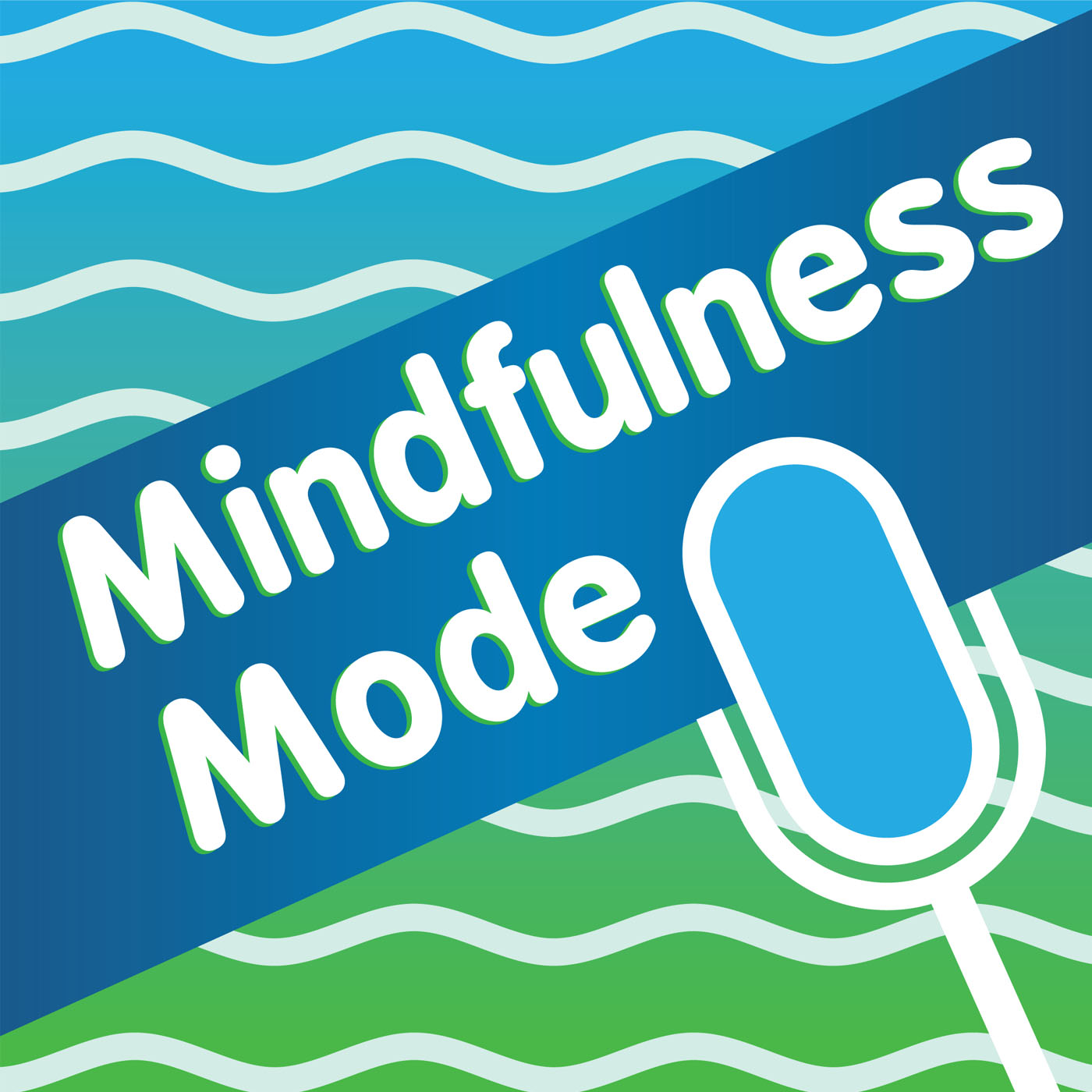
Kat Houghton is helping to provide wearable systems to counter anxiety and depression. Kat has always been fascinated by the intersection of technology and psychology and she is now actively engaged in designing and testing systems to facilitate positive behavior change in a variety of populations. She co-founded ilumivu in 2009 (ilumivu.com) to provide software systems to researchers and clinicians to capture human data and deliver just-in-time interventions.
Listen & Subscribe on:
iTunes / Stitcher / Podbean / Overcast / Spotify
Contact Info
- Company: ilumivu – Software for Humanity
- Website: ilumivu.com
- LinkedIn: Kat Houghton
- TedXTalk: Rights of Nature
Most Influential Person
- Her first meditation teacher
Effect on Emotions
- “Mindfulness helped me become aware of my emotions especially the unpleasant ones. I can sense it quicker than before that it doesn't just explode out of me.”
Thoughts on Breathing
- “Breathing is a huge part of it. It is my bridge and anchor.”
Suggested Resources
- Book: The Power of Now by Eckhart Tolle
- App: Muse www.choosemuse.com
Related Episodes
- 367 Moving In Mindful Motion; Diena Seeger
- 347 Muse Brain-Sensing Headband Creator, Chris Aimone
- 321 Staying Mindful In A World Of Technology; Robert Plotkin
Free Gift

Episode Transcript
Note: The following transcript is a draft transcript, and as such, may contain computer-generated mistranslations.
Bruce Langford:
Tell us what you're doing to help with suicide, anxiety, and depression issues?
Kat Houghton, Wearable Systems To Counter Anxiety:
So we've been since 2009 providing software systems to psychologists and behavioral health researchers to help them be able to collect data from their patients and study participants as they go about their daily life. Right. So typically in, in these kinds of research projects you, you only get to talk to your study participant when they show up at the clinic, maybe once a week, once a month, depends on the type of study. And then you get to do a questionnaire with them, kind of ask them how they're feeling which gives you a very limited view of what's actually really going on for these people. So we provide software that then that it's just an app for, from the participant's point of view, it's just an app. They download on their phone and then it'll alert them multiple times throughout the day.
Kat Houghton, Wearable Systems To Counter Anxiety:
And just some quick check-in, how are you doing? What are you feeling? What are you doing? What do you need right now? What would help you feel better? This depends on the research program as to what they ask. But we're able to collect data that then gives the research has a much more dynamic view of what's happening for that person. So we get to see throughout the day, how things are changing throughout the week, how things are changing from them, what types of things trigger them, feeling more anxious or stressed or trigger them, feeling more grounded and more present and more mindful. And then alongside that, researchers are able to deliver interventions. So it's not just collecting data and monitoring their participants, but they can also deliver what we call just-in-time interventions, which is where the app knows. Essentially the app knows when's the optimal time to send you whether it's a message or it's a guided meditation, or it's a video to watch whatever the content is.
Kat Houghton, Wearable Systems To Counter Anxiety:
The app knows when's the best time for that individual. So this is all based on each individual's patterns throughout the day so that we can try to provide intervention content at the times that it's really crucial for that person. And so is this technology available to people in the mainstream world, or do you have to go to a psychologist or a psychiatrist to make use of this? How does this work? So we have, at this 0.1 app, that's going to be available commercially to consume as the rest of it is available to psychologists. Yeah. So you have to be enrolled in some kind of study to be able to, to be part of it. Cause it's really very new, this whole idea of digital therapeutics, right? The idea that you can offer therapeutic assistance through a mobile app is, is, is very new in terms of the FDA.
Kat Houghton, Wearable Systems To Counter Anxiety:
It's very new. They've not yet kind of figured out really how to regulate all of that. So right now you have to be enrolled in software and a research project, but we do have this one app going that we were starting to put together and will be launched soon. That's an app designed specifically to help first responders and the pandemic with emotional resiliency. So our first responders obviously are on the front lines, not only medically and physically, but also that the mental health is really at risk. And many people have seen some of the news reports that we've heard from ER, doctors and nurses and, and EMT and, you know, people that are really on the front lines is we're dealing with this pandemic. And so we've been working with a group from the University of Utah that has developed a program called mind shield, and it's, they've developed it in collaboration with first responders and we're gonna make that mobile that will, using some wearables from Garmin, be able to detect when people are really reaching a peak of stress.
Kat Houghton, Wearable Systems To Counter Anxiety:
In those moments, (and that might not be necessarily the best moment for a first respondent), but it knows when to bring the content to them, but it knows when they're feeling very stressed and can offer certain techniques that they've been trained in to help them regulate themselves and bring themselves back to feeling a bit more grounded and calm.
Bruce Langford:
And when do you expect this will be available?
Kat Houghton, Wearable Systems To Counter Anxiety:
This is probably another couple of months out. It's been taken a little while to get all the pieces together. Cause there's a new venture that just about a month ago, we've created this partnership with University of Utah. So it's going to be a couple more months before that's available. We're in the process of fundraising right now to be able to make it free for first responders around the country.
Bruce Langford:
Okay, great. Yeah. Well, my wife is a trauma nurse, so she's been looking after COVID patients and yeah, it can be extremely challenging. There's just no doubt about that. And I think people who don't know anyone that, that is working in that capacity, they don't realize what it's like and it is very, very stressful.
Kat Houghton, Wearable Systems To Counter Anxiety:
Absolutely. Yeah. And right. So our first responders are receiving the most of this. And everybody, I think obviously is in a state of stress and over the last couple of months, I mean the uncertainty is really, really challenging for, for people.
Bruce Langford:
Yes, it is. So what signs were there when you were a child that you would end up working in this field?
Kat Houghton, Wearable Systems To Counter Anxiety:
I don't know that there were any, like, this was so far, I mean, this isn't the sort of thing children dream about, right?
Bruce Langford:
No it isn't. But sometimes when you go back to childhood and you think about a day in your life, when you were seven years old, you might think, Hey, just a minute, I did this or I, my certain friend was this way or something like that. Are, were there any clues at all?
Kat Houghton, Wearable Systems To Counter Anxiety:
You know, I wondered that myself a lot because it seems like such a strange, so I grew up on a farm and the North of England and Southern Scotland. So I was always around animals and that was always like, that was the thing that most excited me was being with the animals and caring for the animals and wanting to make life easier for them. And somewhere along the line, I translated that into people I guess, and realized that it's sort of taking care of people and helping make sure that we can all sort of support each other was, was became very important to me.
Bruce Langford:
Right. Well, which one of these apps that you've been working on has sort of been the project that has meant the most to you?
Kat Houghton, Wearable Systems To Counter Anxiety:
Hmm. Well, we started this, as I said in 2009. And we started building a platform for parents of children with autism. So, that was my background. That's how I got my doctorate, was working with families and children with autism. I did that for 15 years and I ended up getting, developing a parent training program for parents, with children, with autism that was play-based and, and really just a wonderful way to be with families and children. And I, I enjoyed it immensely and leap from there and to software because I really wanted to, I felt like I'd reached the end of like how many people can I help in a day? Like there's a limit to how many people I can reach in a day. And I, and I saw with software that there was a much bigger scope that could just reach a lot more families and in one day or one week.
Kat Houghton, Wearable Systems To Counter Anxiety:
So that was the first platform that we built was an online platform. And this was before we were doing apps, this was 2009. It was an online platform where parents could keep track of all the different treatments that were using for their kids. All the different symptom changes they were seeing and be able to share that in a secure HIPAA compliant way with their care team, which just took a huge burden off of the parents. This like keeping track of all the, what they were doing was a full-time job, nevermind parenting a child with autism, and then having to retell that to every single person, you know, professional that they came in touch with was also a lot of work. And so to have a platform where they could go and they could see what they would try and make sense of, what are we doing? And what's working, what seems to be having an impact on my child was something that, that time just wasn't available. And we were really excited to be able to provide that to parents.
Bruce Langford:
So are there any other apps that you've been thinking about creating that can help parents with children with autism?
Kat Houghton, Wearable Systems To Counter Anxiety:
That was the last one that we did with autism. Cause then we started, we just sort of blew up and we started providing it to a much broader range of, of research. So now we don't actually provide any of the content. We provide the infrastructure. So we partner with researchers who may be working in all sorts of different fields. So some of them are doing mindfulness interventions. Some are working on anxiety, some are working on suicide, early detection of schizophrenia. So it's gone beyond what my original intent was and that now we're able to, to impact all these other communities that I hadn't even really thought about. Because we're working with partners who have content and all those areas.
Bruce Langford:
And I want to ask about meditation. Is meditation part of your own personal life?
Kat Houghton, Wearable Systems To Counter Anxiety:
It is, yeah. 25 years now. I mean, not everyday meditation looks like for you. Yeah. It looks well over 25 years, it changes. Right. It looks really different depending on what phase I'm in. Sometimes it looks like me sitting on my cushion, breathing, following my breath, and just trying to stay with that often in the winter. That's what it looks like. As soon as it starts to get a little bit warm then I'm outside. That's the first thing I get up in the morning and I'm outside on my meditation becomes a walking meditation and a nature-based meditation. So really taking in as much as I can, that more than human world and opening myself to that same, same process letting go of my thoughts, just letting them go and coming back to what is the bird song, the winds and the, in the trees, the sound of my feet on the ground, the Creek flowing by whatever it is, bringing myself back to the world that I am, I am part of and being conscious of that.
Tune in to the episode to learn more.








